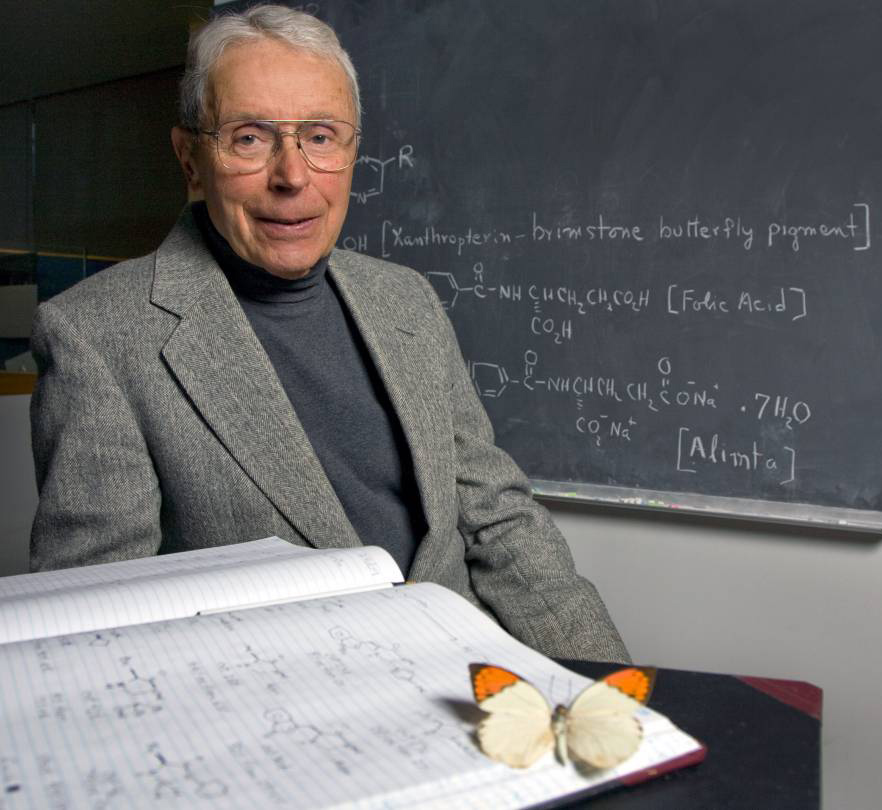Edward C. Taylor, inventor of anti-cancer drug, dies at 94
Edward C. Taylor, a Princeton University chemistry professor whose research into butterfly wing pigments led to the development of a cancer-fighting drug used worldwide, died Nov. 22 in St. Paul, Minnesota. He was 94.
“Ted Taylor’s scientific discoveries contributed greatly to this University and to the medical treatments available to cancer patients,” said Princeton President Christopher L. Eisgruber. “His ebullient love of chemistry and his cheerful spirit made him a mentor to many and a treasured friend to the Princeton Department of Chemistry. We will miss him greatly.”

Photo by Denise Applewhite, Office of Communications
Taylor, the A. Barton Hepburn Professor of Organic Chemistry, Emeritus, joined the Princeton faculty in 1954 and transferred to emeritus status in 1997.
He was one of world’s leading heterocyclic chemists and made pioneering contributions to areas spanning synthetic methodology, natural products synthesis and medicinal chemistry.
Taylor’s research led to the development of the anti-cancer drug Alimta in cooperation with the pharmaceutical company Eli Lilly to treat malignant pleural mesothelioma, a lung cancer often caused by exposure to asbestos. Approved by the U.S. Food and Drug Administration in 2004, the drug has since received additional approvals for treatment of other tumors.
The drug came about through Taylor’s study of the properties of butterfly wing pigments. As a graduate student starting in 1946 at Cornell University — his undergraduate alma mater — Taylor was fascinated to learn that a compound obtained from spinach and liver had a unique chemical structure with a nucleus previously only observed in the pigments of butterfly wings. …
The full announcement continues on the Princeton University website:
